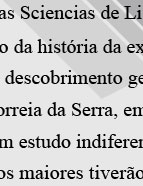

................................
In France, the opening of state archives following the Revolution drew attention to the importance of international relations in national futures. The historical method became increasingly rigorous, decisively focusing on a scientific basis supported by textual knowledge and criticism. Guizot—who was an ambassador and minister as well as a historian—initiated a collection of Documents Inédits sur l'Histoire de France (1834). Works such as François Combes's Histoire générale de la diplomatie européenne (1854), on the formation of European equilibrium from the Peace of Westphalia to the Treaty of the Pyrenees, and the Étude sur l’Histoire Diplomatique de l’Europe de 1648 à 1791 (1880) by the former diplomat Count de Barral, alongside the establishment of the École Pratique des Hautes Études (1868), the documentary compilations such as Recueil des instructions données aux ambassadeurs et ministres de France (published from 1883 under the auspices of the Commission des Archives Diplomatiques of the Ministry of Foreign Affairs), and the creation of journals such as the Revue d'Histoire diplomatique (1887), even though merely descriptive, contributed to raising awareness of the importance of international relations in national futures.
The publication of Albert Sorel's Histoire Diplomatique de la guerre franco-allemande (2 vols., 1875) left a critical mark on the so-called scientific diplomatic history, supported by textual knowledge and criticism, albeit with a focus on state relationships and national interest, regardless of the governing ideology. This normative realism, with its emphasis on politics and the centrality of the state, produced a history that favoured events, prominent figures, and negotiations between chanceries, creating a paradigm often characterised by legitimising and patriotic discourse. Langlois and Seignobos's Introduction aux études historiques (1898) established the rules of the method, yet was unable surpass the paradox: on the one hand, undeniable scientific progress in terms of rigour; on the other, a limitation of the historian’s scope of action, prioritising events and the surface of the past.
